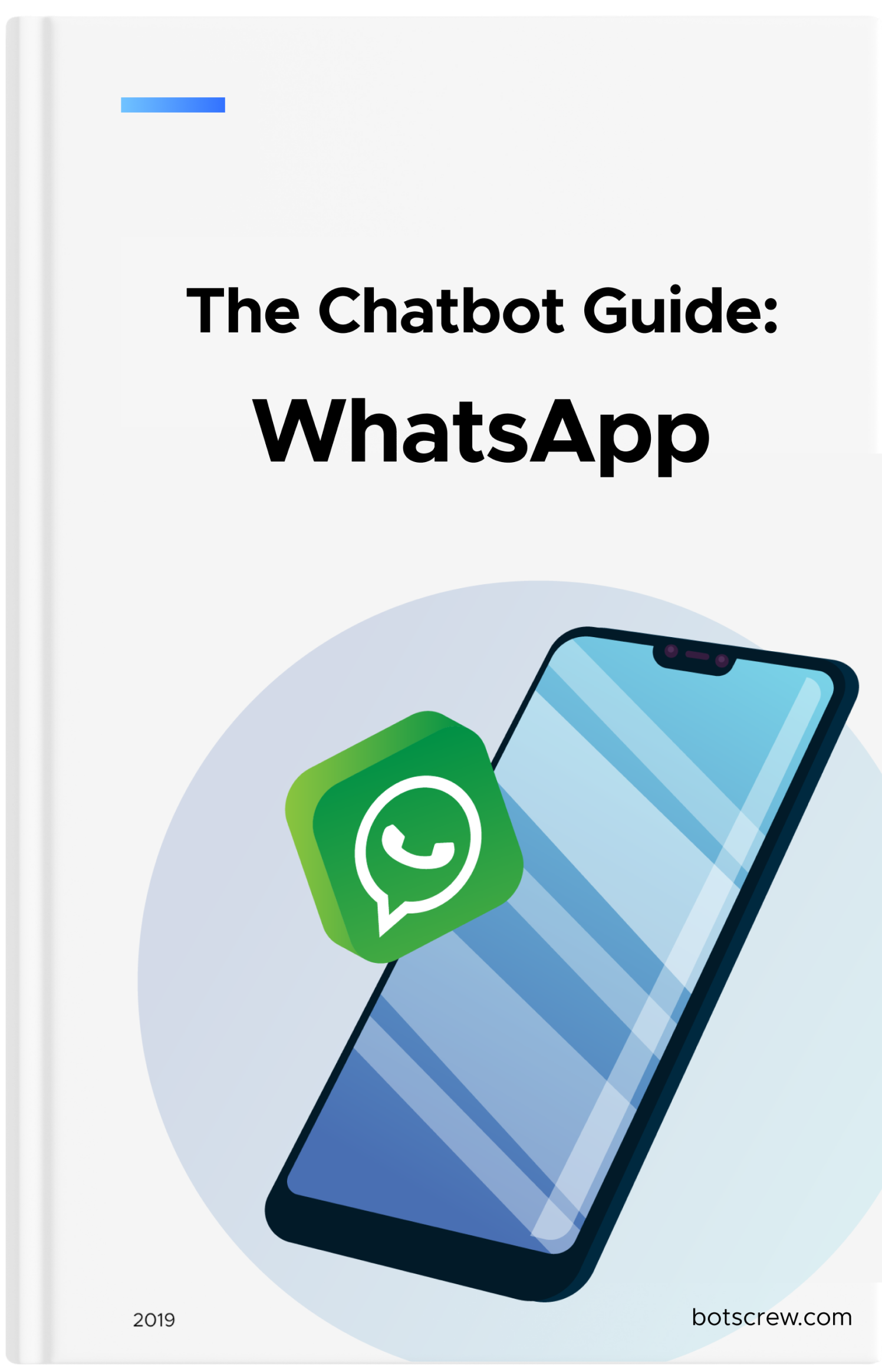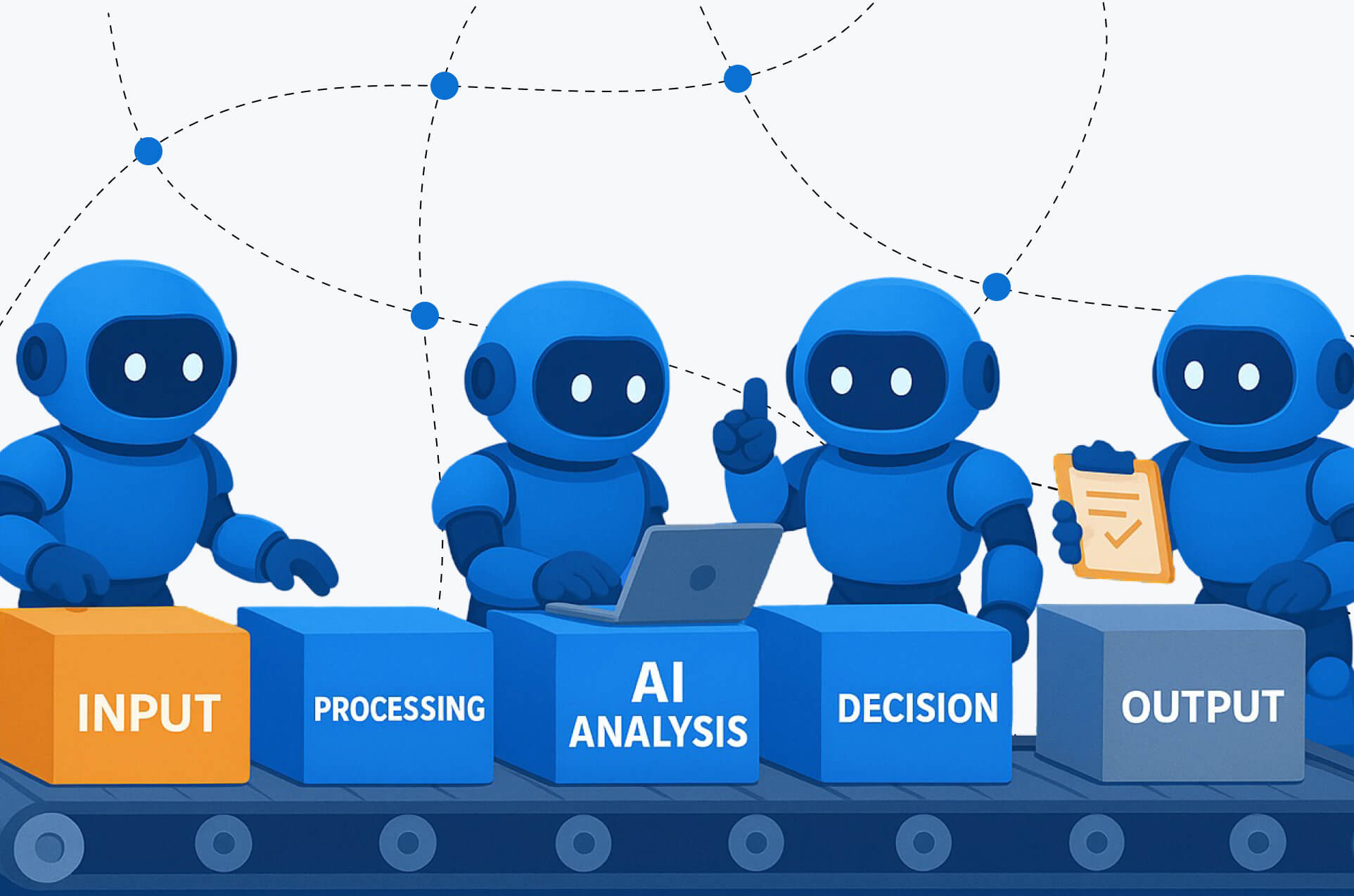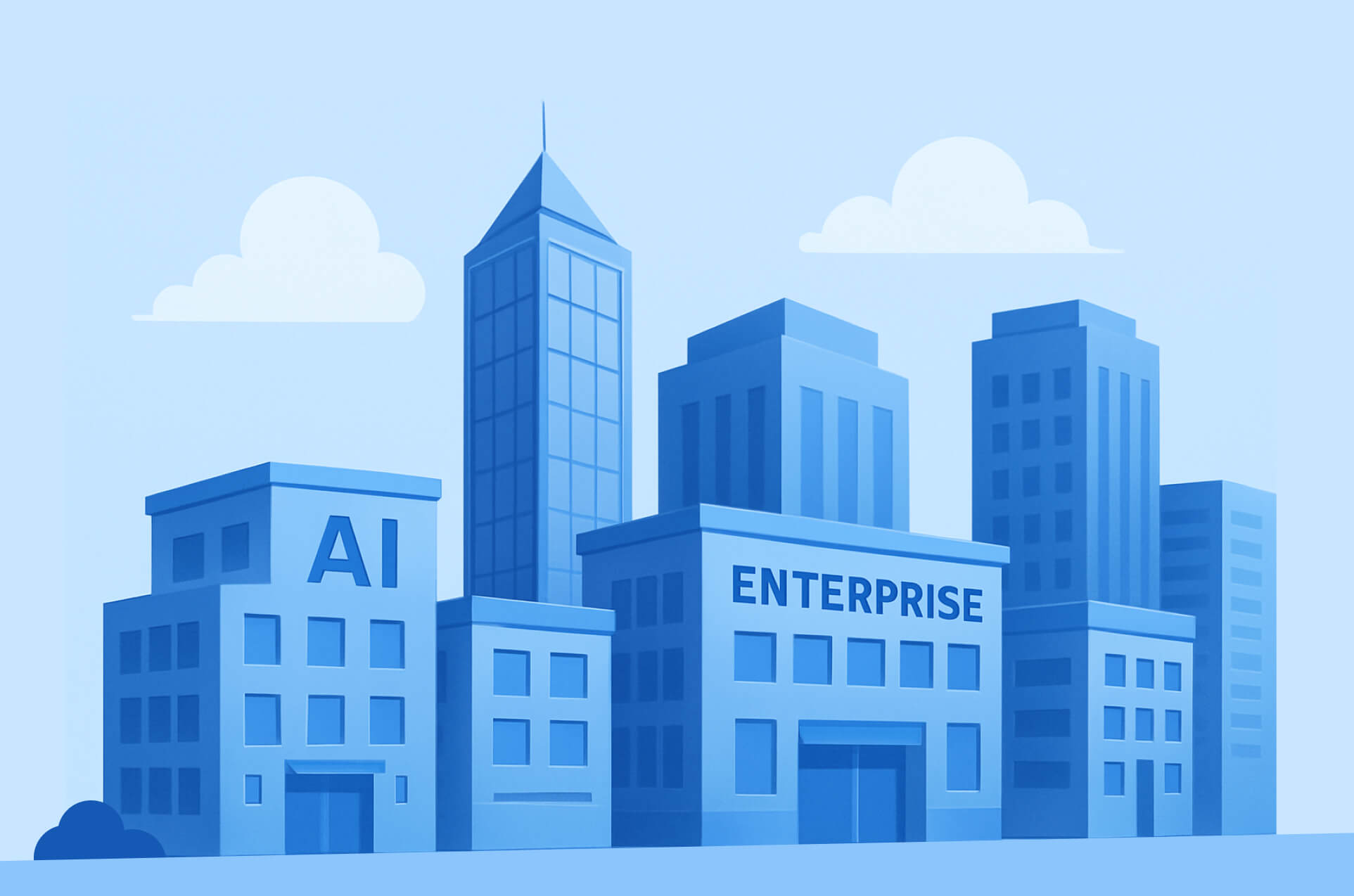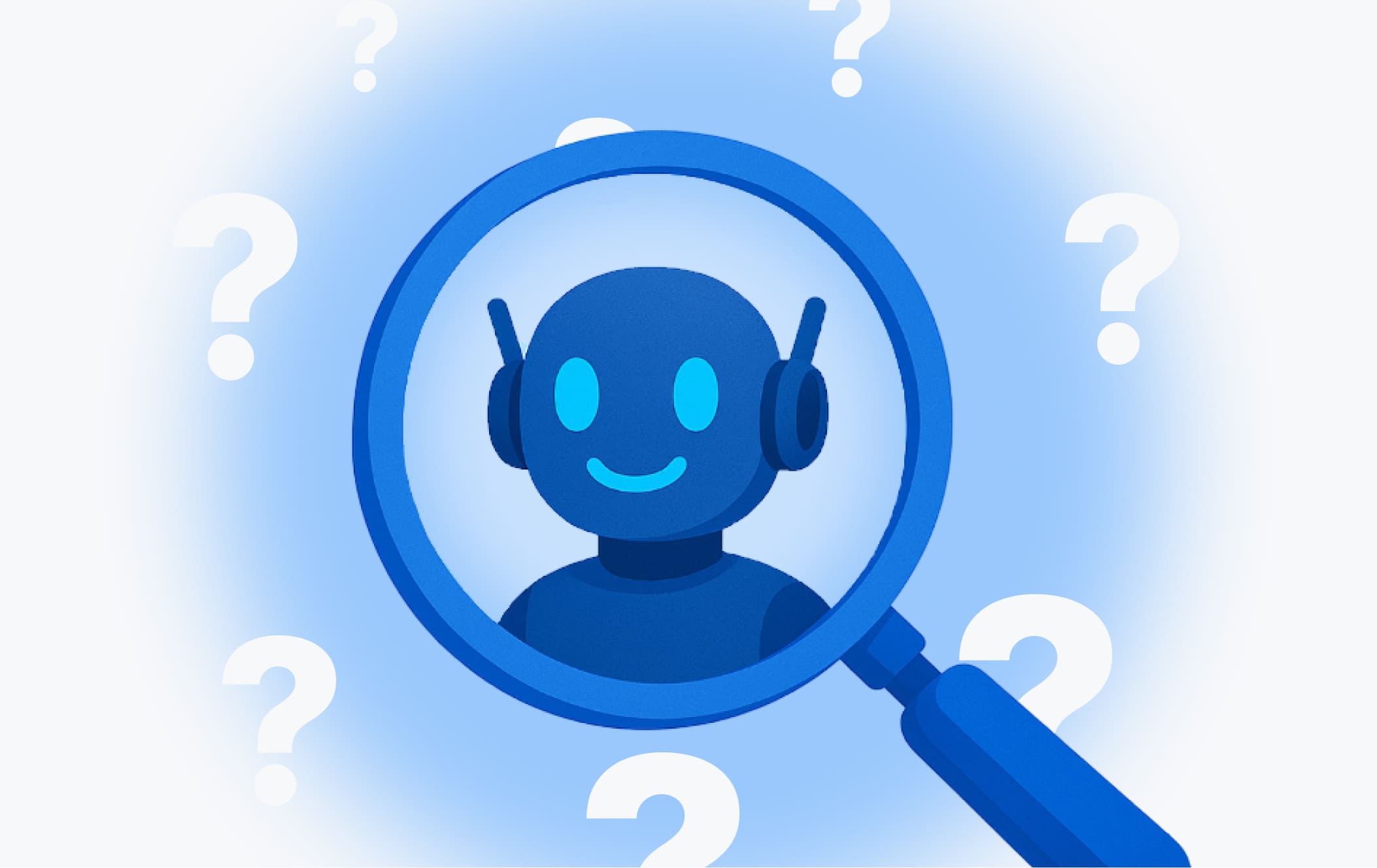How Generative AI in Sales Can Help Your Managers Sell Faster
Close more business deals with generative AI in sales.
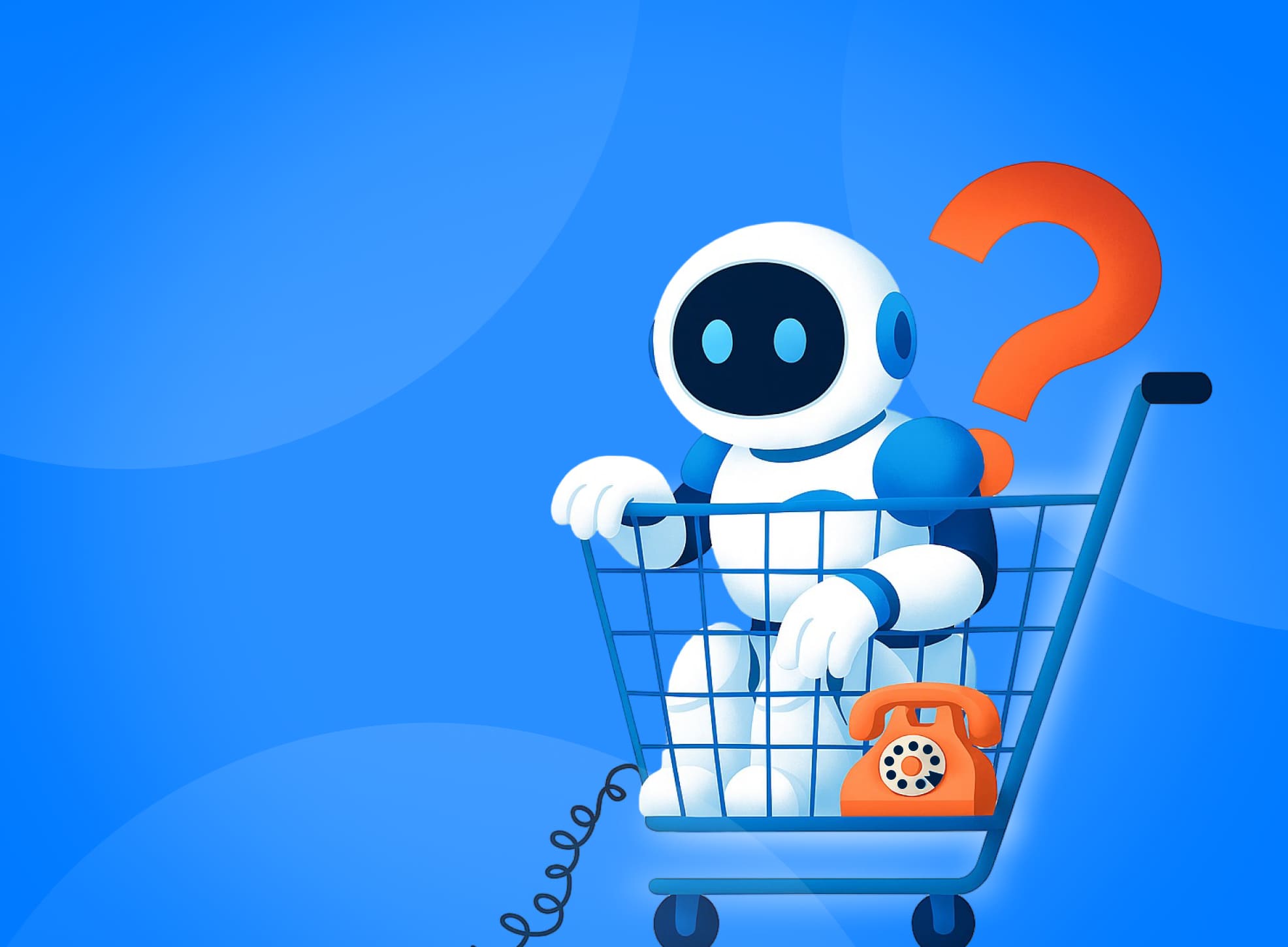
Do you know where your sales team's time goes? Take a closer look at the typical sales cycle. Chances are, your team isn't spending most of their time closing deals — they are stuck deep in the trenches of administrative work.
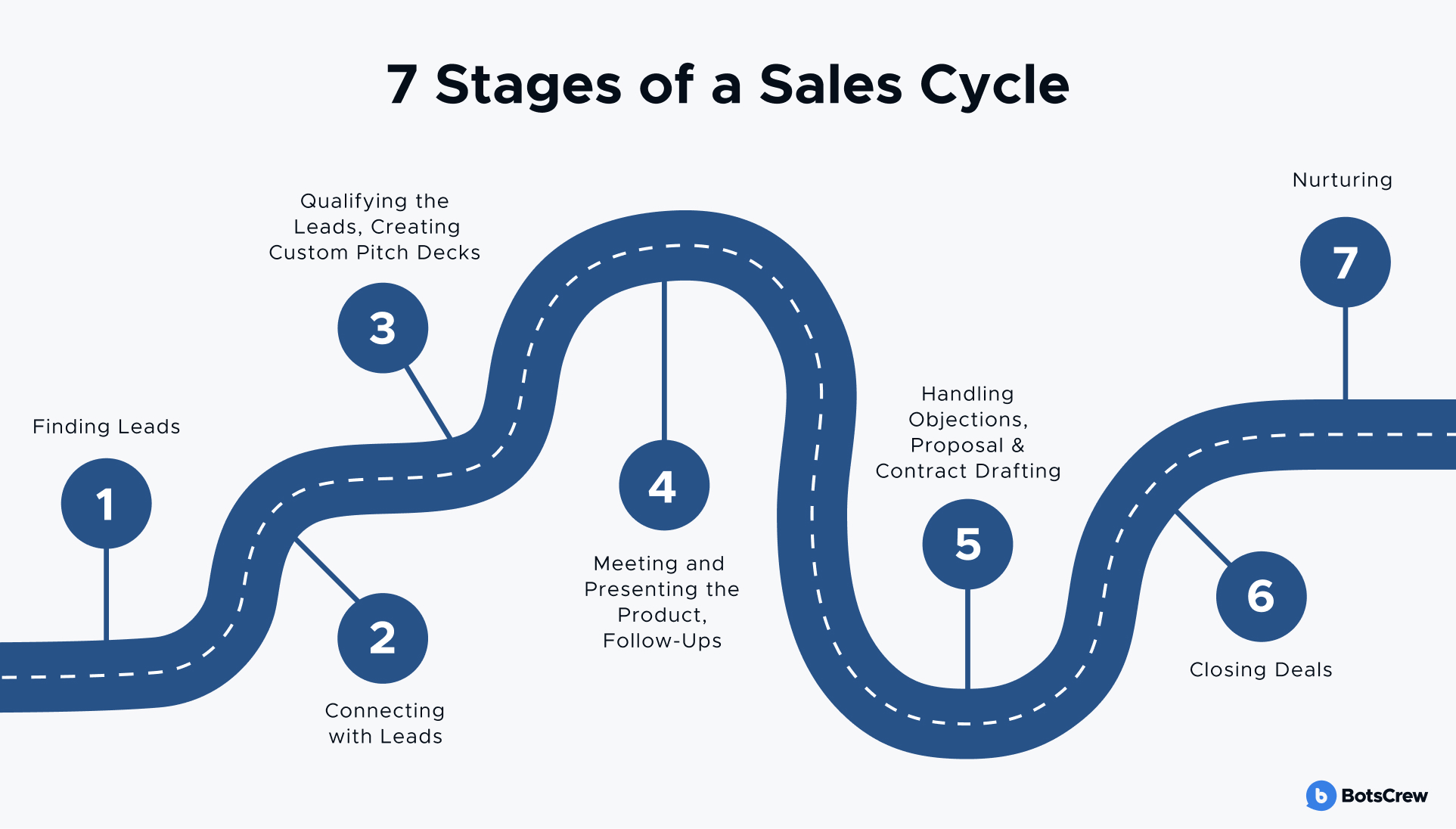
Logging activities, chasing CRM updates, managing spreadsheets… These time drains might seem minor, but over weeks and months, they add up to missed opportunities, mental fatigue, and a slower pipeline.
Here is where generative AI in sales starts flipping the script. Imagine you walk into a sales meeting. One tool is writing a custom pitch, another is surfacing live insights about your lead, and a third is auto-summarizing your conversation in real time.
No surprise that, according to a Harvard Business Review study, companies that integrated AI into their sales processes saw over a 50% increase in customer acquisition — while simultaneously cutting costs by 40 to 60%.

Let's break down exactly how to use AI for sales — and how your business can tap into it to scale faster, work smarter, and close more deals.
Why Generative AI in Sales?
Your top salesperson just spent the last hour… updating CRM notes. Another team member is buried in follow-up emails — again. A hot lead didn't get a response fast enough and went cold. And your pipeline review? It's built manually, again, late at night.
This is the hidden cost of modern sales — your team is hired to close deals, but ends up drowning in admin tasks, switching between tools, and chasing data instead of customers.
Now, imagine a different reality. Your CRM updates itself. Follow-ups are auto-generated before the call even ends. Meeting notes become action items — instantly. And every rep starts their day knowing exactly who to talk to and why.
That's what Generative AI is already doing for modern sales teams. Let's dive into how exactly AI is reshaping sales:
Automating Manual, Repetitive Work
Sales reps spend up to 66% of their time on non-selling tasks — updating CRM fields, writing follow-up emails, scheduling meetings. AI sales agents integrate seamlessly into existing sales workflows to eliminate the grunt work. They capture meeting notes in real time, summarize conversations, auto-fill CRMs, generate follow-up emails, and even schedule next steps — all without manual input.
Estimates show that AI can automate up to 40% of a sales manager's workload — freeing them up to focus on strategy, not spreadsheets. By offloading routine tasks to AI, sales teams can focus on the areas that drive real impact — elevating customer experience, launching creative solutions, and expanding into new sales channels.
Strategic impact:
- Reps regain hours each week for strategic selling.
- CRM data quality improves, enabling better forecasting and insights.
- Managers get complete visibility into rep performance and deal progression — without micromanaging.
Advanced Client Data Analysis
Sales teams often rely on limited surface-level data — name, title, company size. That's not enough in today's competitive market, where personalization is expected.
Generative AI in sales can process vast amounts of structured and unstructured data — from CRM notes to email threads to market signals — to reveal patterns in customer behavior, sentiment shifts, and purchase readiness. This analysis equips sales reps with deep customer intelligence:
- What pain points are driving urgency?
- What decision-making patterns do similar clients show?
- When is the best moment to re-engage?
Therefore, AI turns fragmented data into actionable insights that help reps approach the right person, with the right message, at the right time.
Personalized Product Recommendations
Without AI, product suggestions rely on guesswork or outdated templates — resulting in poor cross-sell/upsell performance and generic buyer experiences.
Meanwhile, AI uses behavioral signals (past purchases, content engagement, browsing behavior, email clicks) to recommend the next best offer tailored to each buyer.
A McKinsey study reveals that 76% of consumers are more likely to buy from companies offering personalized products. For instance, customized emails boost click rates by 139% compared to generic blasts.
At its core, personalization means recognizing each customer's unique preferences — whether through tailored landing pages, targeted product recommendations, or one-on-one consultations — creating a truly individual experience that drives engagement and sales.
Strategic impact:
- Higher average order value through relevant upsells.
- Increased trust and satisfaction — buyers feel understood.
- Enhanced account growth with minimal manual effort.
Imagine a rep engaging a client interested in data analytics. AI can instantly suggest add-on products like predictive dashboards, based on that client's industry and behavior across your site.
Lead Scoring and Prioritization
Without AI, reps often spend equal time on all leads — even those with low intent — while high-value prospects may be overlooked.
AI evaluates a broad mix of signals (website visits, email engagement, job changes, competitor product usage) to calculate a real-time lead score. It flags hot leads and deprioritizes cold ones.
From a list of 10,000 prospects, AI can instantly identify the top 2% most likely to convert — saving reps from wasting hours chasing low-value leads.
Strategic impact:
- Increased efficiency — reps focus on where the ROI is highest.
- Shorter sales cycles.
- Higher conversion rates and improved team morale.
Data-Driven Selling Powered by Generative AI
Prospects are 300% more likely to open an email if it lands within a week of their first interaction. AI sales agents can identify this optimal timing automatically, ensuring your outreach hits when it matters most.
A Business Applications Research Center (BARC) survey found that data-driven selling can boost revenue by 8% and cut transaction costs by 10%. With generative AI in sales powering these insights in real time, your sales team can act faster, personalize smarter, and close deals more efficiently.
Strategic Impact:
- Accelerates lead qualification by prioritizing the most engaged prospects.
- Enhances personalization with dynamic, data-backed content tailored to buyer behavior.
- Optimizes sales timing to maximize open rates and response likelihood.
- Reduces manual analysis, freeing reps to focus on high-value interactions.
Multi-Channel Outreach at Scale
Coordinating messages across email, LinkedIn, SMS, and calls is time-consuming and often inconsistent.
Generative AI in sales can craft personalized outreach messages tailored to each channel and recipient — adapting tone, timing, and content based on context. It can even A/B test variations and learn which approaches perform best.
AI might auto-draft a LinkedIn message referencing a prospect's recent webinar appearance, followed by a personalized email with a relevant case study — all triggered by their latest engagement on your website.
Strategic benefit:
- Reps scale their outreach without sounding robotic.
- Messaging stays relevant and consistent across platforms.
- Engagement rates rise while manual effort drops.
Get a Free AI Readiness Assessment. Discover how your sales process can benefit from a custom AI solution.
Beyond Chatbots: Surprising Use Cases of Generative AI in Sales
Talk about AI in sales, and people often imagine robotic chat windows and auto-generated emails — but that's just the surface layer. In reality, AI can handle much of the behind-the-scenes work that eats up hours of a salesperson's time — from analyzing complex industries and mapping out negotiation strategies to crafting objection-handling scripts or prepping for high-stakes client meetings.
Personalized Battlecards Before Every Meeting
Salespeople often struggle without up-to-date, detailed intel on competitors that clients frequently bring up during negotiations. This lack of insight leads to uncertainty, weaker arguments, and ultimately fewer closed deals.
How Generative AI Fixes This?
— Gathering Competitive Intelligence. AI continuously scans publicly available sources for fresh competitor info:
- Official websites and social media channels
- Industry news and press releases (product launches, new office openings)
- Job postings indicating strategic moves or expansion.
All data is aggregated in real time to keep the insights current and relevant.
— Analyzing Strengths and Weaknesses. The AI compares your product against competitors and generates a comprehensive SWOT analysis:
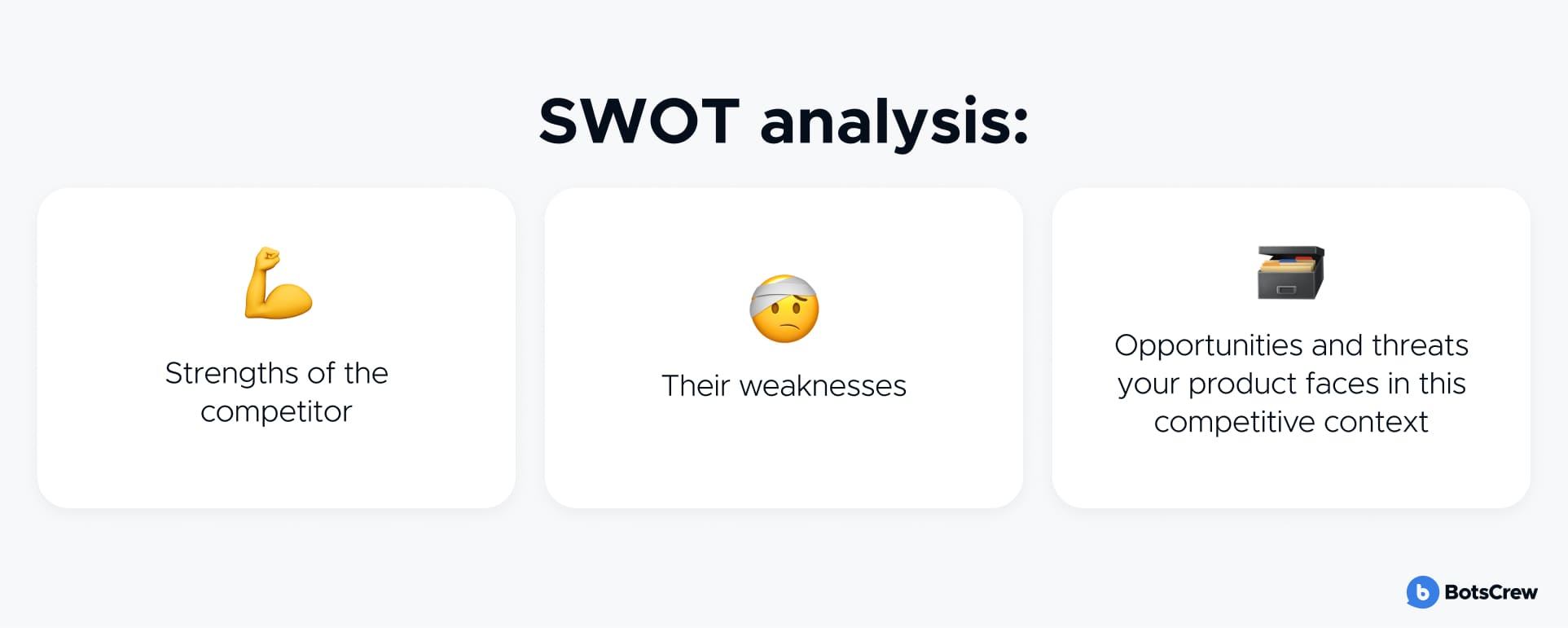
This structured report becomes the foundation for a tailored battlecard.
— Creating a Personalized Battlecard. Using client-specific insights, AI crafts a customized document that highlights:
- Key features and benefits most relevant to the client's needs
- Strategic talking points to emphasize during the deal
- How to tactfully counter references to Competitor X with persuasive messaging.
— Embedding Objection-Handling Scripts. The battlecard includes ready-made, intelligent responses to common objections, such as:
- “But they are cheaper”
- “They offer more integrations”
- “Why should I choose you?”
These scripts empower sales reps to respond confidently and swiftly.
✅ The result: Sales reps walk into every meeting fully prepared and confident → Equipped with sharp, personalized insights → Insights turn tough competitor mentions into opportunities → Faster decisions, stronger client trust, and more closed deals.
Preparing for Client Meetings in Minutes
Generative AI in sales serves as a personal analyst and coach for sales professionals, preparing them in just 5 minutes for important or challenging meetings — especially when dealing with a specific client, a new industry, or a complex product.
Salespeople often face questions like:
- “I don't know anything about this company.”
- “Who exactly will be attending the meeting?”
- “How can I best communicate our value to them?”
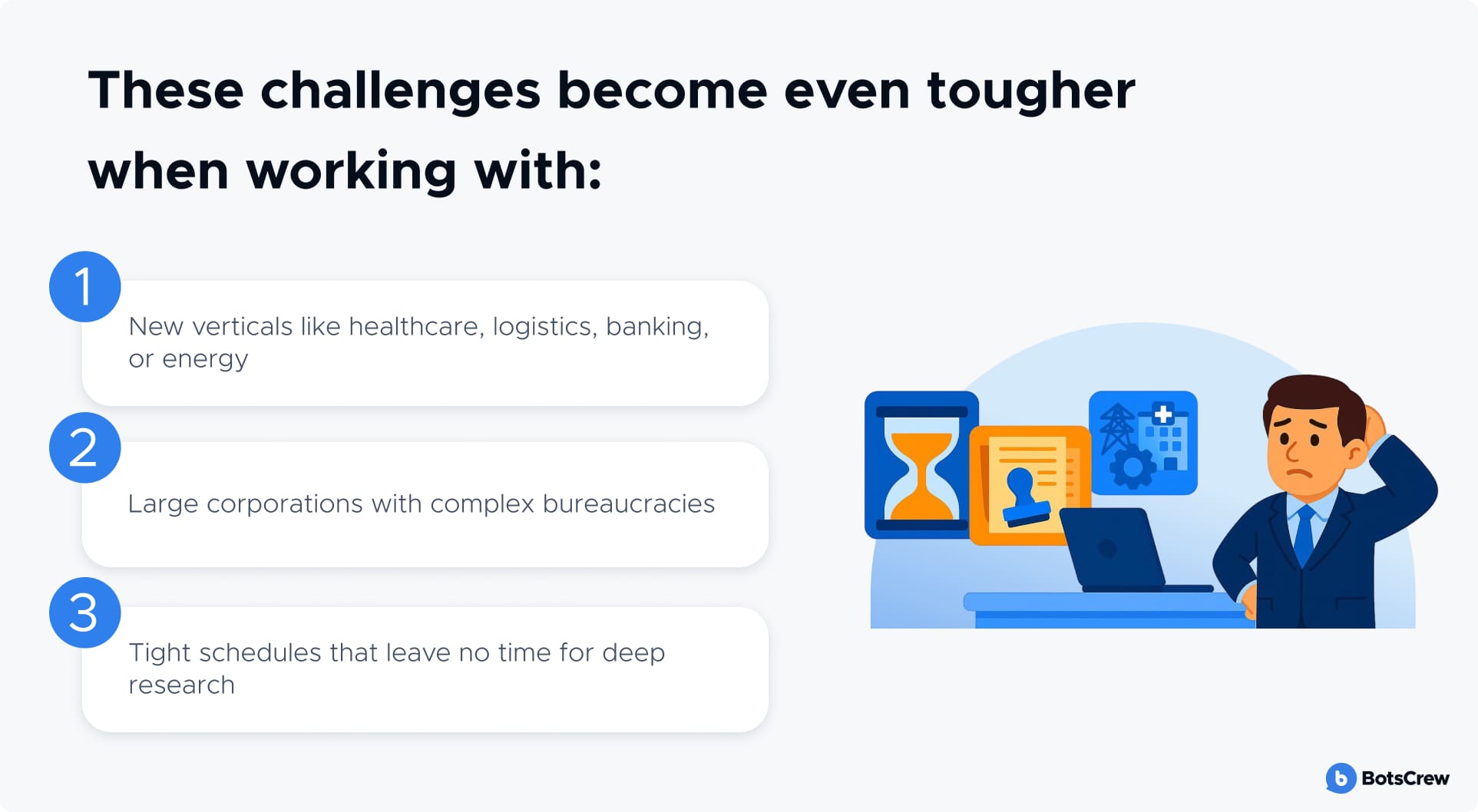
How Generative AI Fixes This?
🗂️ Input. The salesperson sends a quick message to the AI bot or CRM, e.g.:
“Meeting tomorrow at 3 PM with the Head of Procurement at PharmaCo. We are selling an analytical SaaS product. PharmaCo is a European pharmaceutical company. How should I prepare?”
🧠 AI Analyzes Industry specifics, revenue, location, ownership structure, Key industry challenges (regulations, competitors, trends), Recent triggers (mergers, restructuring, product launches).
It also explores everything about the contact person: LinkedIn profile, publications, tenure, background, decision-making style and priorities, potential objections or biases (e.g., focus on cost-saving KPIs). All previous interactions are fully taken into account. What has been discussed or shared so far, interests and objections raised, engagement with shared materials (e.g., presentation views), etc.
📄 AI Creates a “Meeting Cheat Sheet”: about the client, potential pain points, how to communicate value, key tactics.
🎤 Optional Extras:
- Generates 3 tailored slides with relevant arguments
- Provides a cold opener or quick mini-pitch
- For online meetings, crafts a concise “How much does it cost?” reply that highlights benefits.
✅ The result: Preparation done in 5 minutes, boosting confidence → Clear understanding of what to say, how, and why → Personalized, client-focused selling instead of generic scripts.
Post-Call Follow-Up with Objection Handling
After calls, clients often raise doubts, but sales reps may lack the time or skill to craft effective objection-closing responses.
How Generative AI Fixes This?
— Transcribing the Call and Identifying All Objections (e.g., “Not ready for migration,” “Budget constraints”)
— Generating a Personalized Follow-Up Email. Addressing each concern with relevant case studies, content links, and clear CTAs
— Sending or Preparing the Draft for Sales Rep Review.
✅ The result: Higher chances of re-engaging the client and saving 30–40 minutes of manual work after every call.
Post-Call Email with Objection Handling
After a client conversation, doubts and objections frequently arise. However, salespeople often lack the time or expertise to quickly craft a follow-up email that effectively addresses and “closes” these objections. This gap can lead to missed opportunities to keep the dialogue alive and move the deal closer to closing.
How Generative AI Fixes This?
— Call Analysis: AI transcribes and analyzes the conversation.
— Objection Identification: The system pinpoints critical client concerns, such as “We are not ready for migration yet” or “Our budget is limited.”
— Personalized Email Creation: Based on these objections, AI generates a tailored email that addresses each point with relevant case studies, helpful content links, persuasive calls to action, and other targeted arguments.
— Automated Sending or Draft Preparation: The email is either sent automatically or delivered as a draft for the sales rep to review before sending.
✅ The result: Higher chances of re-engaging clients → Saves 30–40 minutes per call by automating the time-consuming follow-up task → Improves objection handling effectiveness, leading to increased deal conversion rates.
Automatic Segmentation of Leads by “Sales Readiness”
Not all leads are equally “hot” or ready to make a purchase. Often, sales managers spend valuable time chasing leads who are merely researching the market, gathering information, or just browsing. This results in inefficient use of resources, slower sales cycles, and lower conversion rates.
How Generative AI Fixes This?
The AI system evaluates each lead's activity by analyzing key behavioral signals:
— Email Response Time: A quick reply indicates strong interest and readiness to engage.
— Demo Video Views: Actively watching product demos or video reviews signals deeper exploration of your solution.
— Time Spent on the Website: Visits to critical pages and longer sessions suggest genuine engagement.
— Interaction With Materials: Actions like clicking on PDF presentations, downloading documents, or attending webinars highlight the lead's involvement.
Based on this data, the AI assigns each lead a “Sales Readiness” score — a % that estimates how likely they are to make a prompt buying decision. For example:
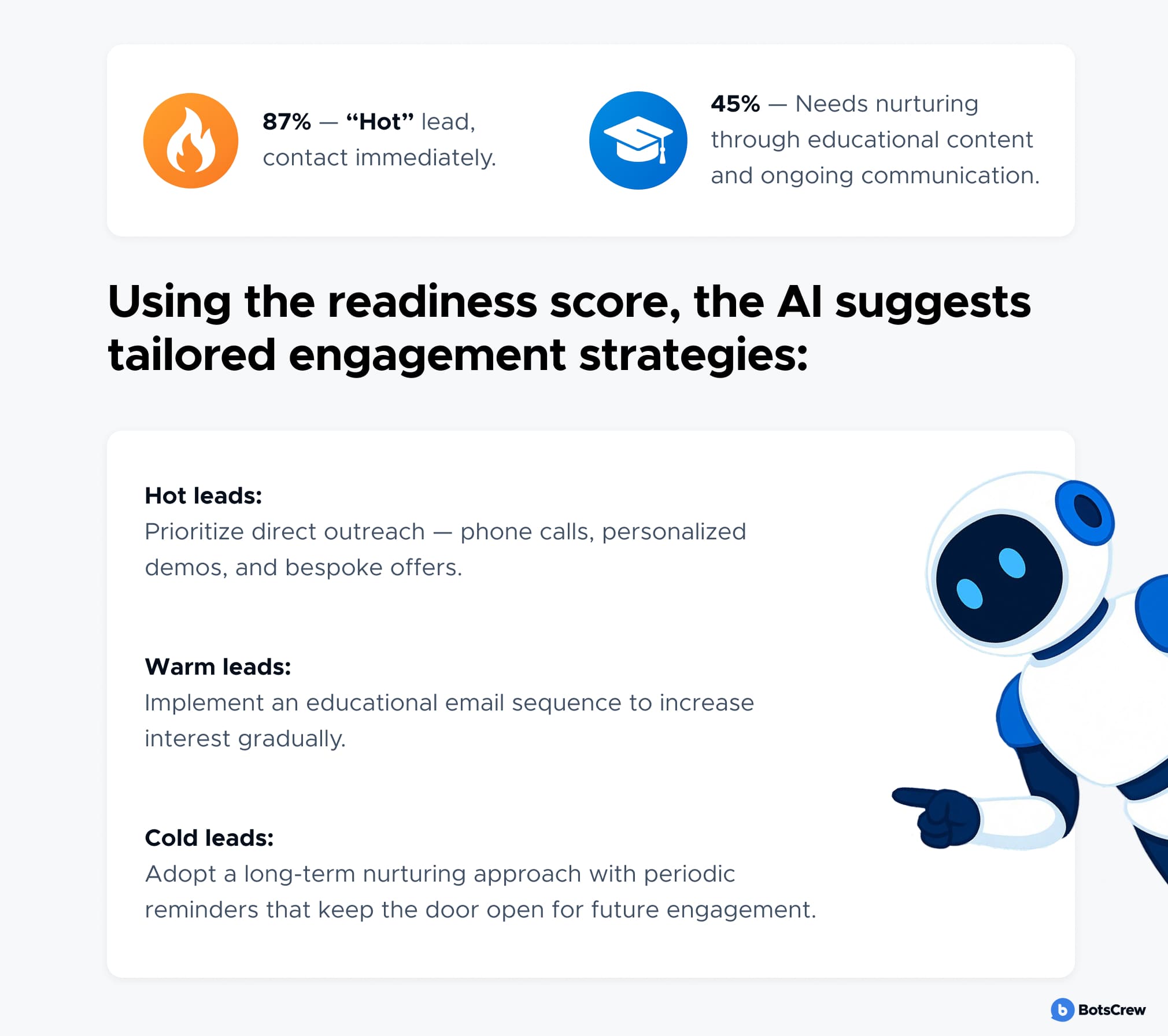
✅ The result: Boosted conversion rates → Optimized internal resources, enhanced sales efficiency → Accelerated the deal-closing process.
Calculate Your Potential ROI with AI. Use our calculator to estimate time and cost savings.
Why Choosing the Right AI Vendor Is Crucial
As sales teams race to keep up with rising targets and increasingly complex buyer journeys, AI promises speed, scale, and precision. However, the impact of AI on your sales process depends entirely on how well it's implemented — and that starts with who builds it.
You have two paths: adopt an off-the-shelf tool or invest in a custom solution designed around your unique sales operations. If you are serious about transformation, the latter is the only real option, which means partnering with a strategic AI vendor. Let's break down why the right AI vendor makes all the difference.
#1. It's Not Just About Code — It's About Sales Expertise. A custom solution should reflect the full sales cycle — from first outreach to final signature — and reinforce your unique motion. A strategic AI vendor:
- Analyzes your sales funnel, conversion metrics, and decision paths.
- Identifies where leads drop off, which objections recur, and where reps waste time.
- Designs solutions that directly support revenue activity — like automated follow-ups, lead qualification, call summarization, or intent-driven prioritization.
Without a vendor understanding how you sell, the technology won't deliver meaningful outcomes.
#2. Custom Means Competitive Advantage. With a custom solution, your AI understands what a high-intent lead sounds like in your market, how objections differ by region, persona, or deal size, and whether your team uses formal language or casual rapport in communication.
In enterprise sales, AI needs to recognize objections like “we need compliance approval” and respond with appropriate case studies. In B2C, it should segment and score thousands of inbound leads in real time.
The right vendor tailors AI logic, tone, and workflow to your niche, creating experiences that feel personalized and drive engagement.
#3. Seamless Integration Into Your Existing Tech Stack. AI must embed naturally into your team's daily flow — inside your CRM, inbox, call tools, and Slack. A mature AI vendor:
- Integrates through APIs, plugins, and webhooks — no disruption.
- Works across complex environments like Salesforce, HubSpot, Outreach, Gong, Zoho.
- Ensures data syncing, secure access controls, and contextual updates in real time.
The result? Sales managers don't feel like they are learning a new tool. They just see better insights, faster workflows, and smarter recommendations — all in the systems they already use.
#4. Data Security and Compliance Are Non-Negotiable. Your AI will touch everything — emails, transcripts, CRM data, internal knowledge, and pricing conversations. Without robust data governance, the risks are enormous. A trusted AI vendor ensures:
- Full compliance with GDPR, SOC 2, ISO/IEC 27001, and more.
- Private model hosting or isolated execution environments.
- Transparent audit logs, access controls, and encryption at every step.
This is mission-critical for industries like healthcare, finance, or government — but it matters to every business that wants to protect customer trust. BotsCrew dives into your funnel, uncovers what's slowing you down, and designs intelligent systems that accelerate the entire cycle.
Book a Strategy Call. In under 30 minutes, we'll identify 3–5 high-impact AI use cases specific to your sales operations.




